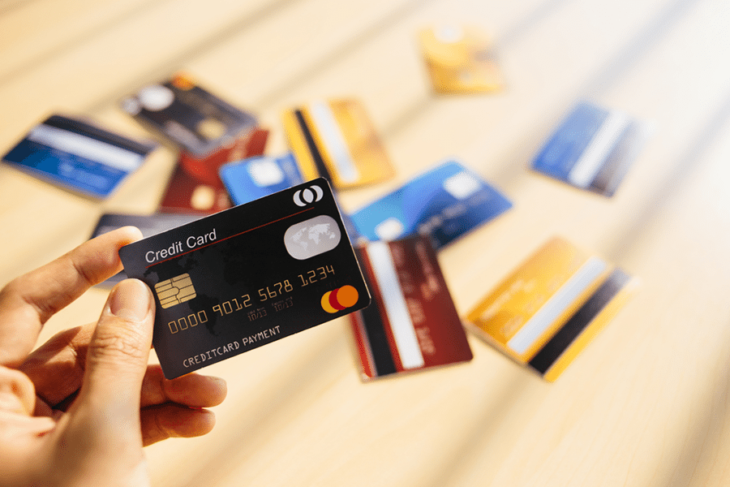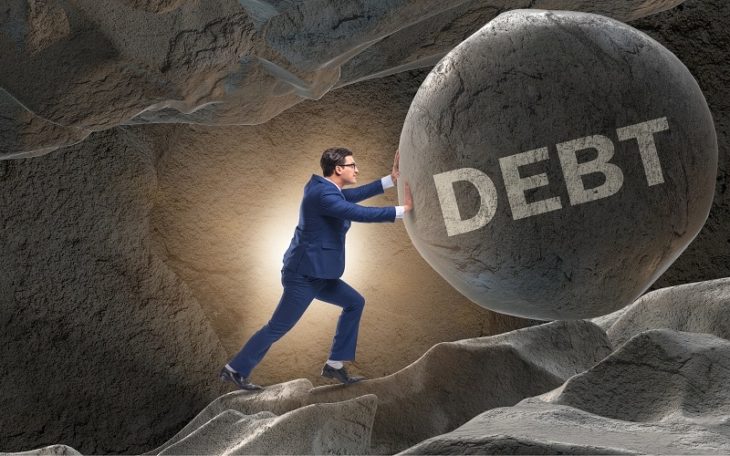When I was 27, I finally took my head out of the sand and did what I had been dreading for months. I added up the balances of my credit cards and discovered that they had skyrocketed to over $15,000! By looking at the statements separately, I had tricked myself into believing my debt was much less. I was blindly writing checks each month, just enough to pay the minimum required. Every time I opened the mailbox, I felt a little queasy.
How did I get to this point? When I first graduated from college, I was making great money and had super-cheap rent, but I longed for a more exciting job and landed one in marketing at a professional hockey team. My dream job minus the dream salary! I worked over 70 hours a week including game nights and made just $30,000 a year. When I calculated my hours, it was below minimum wage. Forget a raise. When you’re low on the totem pole in the sports world, you’re constantly reminded how replaceable you are (they received over 100 resumes a day) and for how much less. It was as if I was paying them to work there.
Contents
Make More, Spend Less

Source: portalfinanse24h
The simplest financial advice I was ever given began to sink in— “Make more, spend less.” Leaving the team a month before the NHL Lockout made my transition a lot easier. I had the foresight to see there weren’t going to be any pucks on the ice for a long time. I got a big girl job in the city in publishing and increased my salary by 50 percent. The magazine world wasn’t as energizing as 16,000 fans stamping their feet, but I focused on my first priority – paying off that debt. When my lease was up, I also moved into an apartment four blocks further from the beach, but $200 cheaper per month.
Swallow Your Pride

Source: Fit Small Business
My stepfather offered me a loan, friends told me to transfer my balances to cards with zero percent interest, and others suggested I call the credit card companies myself. I had too much pride to take an “interest-free” loan from my family; I wanted to prove I was an adult. In retrospect, an adult would’ve accepted the help. My debt was too high to make one neat transfer, and everyone knows that introductory new credit card rates catapult in a few months anyway. Instead, I chose a debt consolidation agency, Cambridge. I trusted them because they had sponsored the hockey team where I had ironically accumulated all the debt. Their nightly advertising messages on the Jumbotron had subconsciously set in – “Get Out of Debt Now!”
Check With The Better Business Bureau

Source: Money Under 30
Horror stories abound of consolidation companies taking your money and NOT paying your debt. Definitely check the company out with the Better Business Bureau before you sign a contract. Also, continue to monitor your monthly statements, even though you won’t be paying them yourself anymore. It may seem obvious, but the balance should be going down, not up. Red flag—if the total is increasing, that’s because late fees are being tacked on and your payment is not being processed.
How It Works

Source: Money Crashers
This was my deal: They took my three credit cards, closed the accounts and negotiated with the credit card agencies to reduce my interest rate from 19 percent to 1 percent on one, and from 23 percent to 7 percent on the other two. I could never do that on my own. These agencies have pull because they handle accounts in volume.
They asked me what I would be able to afford monthly. I said $400, and that amount was automatically deducted from my checking account at the beginning of each month. Yes, there was a monthly administrative fee of $40, or 10 percent of the monthly payment. They said it would be 4.5 years before I was debt-free; I did it in 2.5.
How? I sent extra money in whenever I had it and increased my monthly payment when I switched jobs (again!). When the new gig in digital media provided a generous bonus, the whole thing went to my debt. OK … a few hundred went for clothes. But boom, the debt was gone and I was free at last!
If you live in the United States, and If you’re struggling with debt and looking for professional assistance, consider exploring debt relief options in South Carolina. Whether it’s negotiating lower interest rates, consolidating your debt, or finding a suitable repayment plan, there are resources available to help you regain financial freedom.
Starting Over Credit-Wise

Source: callminer
I have no regrets over acquiring the debt because I had many things to show for it—an apartment with a bed and furniture, suits for game night and job interviews, plane tickets and groceries (when I was unemployed for a few months). These were things I needed or really wanted in my 20s and I always knew I would pay it off down the road.
Once debt-free, I swore off credit cards for a while, but eventually I opened one that rewards with miles—good for both my credit score and my travel bug. Otherwise, I mostly use my debit card and very little cash (I like to have an electronic record of everything).
Honestly, I don’t know what my credit score was then, but it wasn’t important to me at the time. Today, it’s a very healthy 830, which will help me negotiate a decent rate on a mortgage when I can finally commit to one … but that’s a whole other issue.
Clear your mind and get free advice from the National Foundation for Credit Counseling.
Original by Rainbow Kirby
